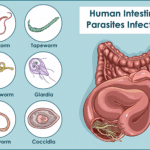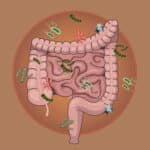Staying Hydrated in the Summer: The Importance of Adequate Hydration During Hot Weather and Tips to Ensure You’re Getting Enough Fluids

This July I headed to one of my favorite summer spots – the Gorge in Eastern Washington. Summer isn’t summer without a concert at the Gorge. When we arrived it was 100 degrees out. Prior to the concert, many concert goers were partying in the camping area at the Gorge. We sat 6th row center of the stage, in full sun and… on asphalt. People dropped like flies. They had to pull at least four people out on stretchers and I watched as at least two others collapsed.
As the scorching summer sun casts its relentless rays, staying adequately hydrated should be the number one goal. The human body is composed of approximately 66% water. Your brain is composed of 95% water, which highlights the crucial role that water and electrolytes play in supporting numerous physiological functions. During hot weather, the risk of dehydration significantly increases due to excessive sweating and increased fluid loss. In this article, I’ll explore the importance of adequate hydration during the summer months and provide valuable tips to ensure you’re getting enough fluids to stay healthy and energized.
The Significance of Hydration
Proper hydration is essential for various bodily functions, including temperature regulation, nutrient transportation, and waste elimination. Water is the primary component of bodily fluids, such as blood and lymph, which are responsible for carrying nutrients and oxygen to cells and removing waste products from the body. Without adequate hydration, these processes become compromised, leading to various health issues.
1. Water Balance and Thermoregulation
Maintaining water balance is crucial for thermoregulation, especially during hot weather. When temperatures rise, the body increases perspiration to cool down through evaporative cooling. However, excessive sweating can lead to rapid fluid loss, elevating the risk of dehydration. Studies have shown that even mild dehydration can impair thermoregulation and reduce physical performance (Kenefick et al., 2018).
2. Cognitive Function and Mood
Dehydration can also impact cognitive function and mood. Research indicates that mild dehydration may lead to decreased alertness, impaired concentration, and reduced short-term memory (Ganio et al., 2011). Moreover, mood disturbances, including increased irritability and fatigue, have been observed in individuals experiencing dehydration (Armstrong et al., 2012).
3. Kidney Function
Proper hydration is vital for kidney function, as it helps in the elimination of waste products and toxins from the body. Insufficient fluid intake can contribute to the formation of kidney stones and urinary tract infections (Sorensen et al., 2015). Staying hydrated can significantly reduce the risk of kidney-related complications.
Tips to Ensure Adequate Hydration
1. Monitor Fluid Intake
How much water should I drink? A simple and effective method to ensure sufficient hydration is to monitor fluid intake. A good average goal is to take your weight, divide it by half and drink that number in ounces. Your body’s water requirement will greatly vary, based on where you live due to altitude and humidity levels, as well as activity levels. Fluids can be water, sparkling water, coconut water and herbal teas. If you drink caffeinated beverages, be mindful that they work as a diuretic, which flush water from your body.
2. Drink Water Regularly
Water is the best choice for hydration as it is calorie-free and easily accessible. Carry a 32 oz reusable stainless steel or glass water bottle to have a constant reminder to drink water throughout the day. Fill this in the morning and drink it by lunch. Refill the bottle and drink it up to dinner. I recommend tapering water intake off greatly after dinner so you don’t need to urinate in the middle of the night. Remember to increase water intake during outdoor activities and intense exercise to compensate for increased fluid loss through sweat.
Add a small pinch of either sea salt or Himalayan pink sea salt to your water. This will help support hydration to support your body better if you live in a hot climate, or, with vigorous exercise.
3. Include Moisture-rich Foods
In addition to water, incorporating moisture-rich foods in your diet can contribute to hydration. Fresh fruits, like melons, cucumbers, oranges, and tomato, pineapple, pears, mango and blueberries, have high water content and can help maintain fluid balance.
Fresh fruit juice and smoothies are additional ways to boost up your fluid intake.
4. Electrolyte Rich Foods
When balancing electrolytes, we look to sodium, potassium, magnesium and sometimes chloride, phosphate and calcium. Here are fruits rich in potassium, sodium and magnesium.
- Potassium rich fruits: banana, oranges, cantaloupe, grapefruit, apricots and honeydew
- Sodium rich fruits: apple, pineapple, melon, pear, banana, avocado, mango
- Magnesium rich fruits: avocado, banana, papaya, cherries, strawberries, blackberries
As the sun beats down during the hot summer months, staying hydrated becomes a vital aspect of maintaining overall health and well-being. Adequate hydration is critical for supporting various bodily functions, including temperature regulation, cognitive function, and kidney health. To ensure you’re getting enough fluids, monitor your intake, drink water regularly, and include moisture-rich foods in your diet.
- Kenefick RW, Cheuvront SN, Charkoudian N, et al. Hypohydration and Human Performance: Impact of Environment and Physiological Mechanisms. Sports Med. 2018;48(Suppl 1):S103-S122.
- Ganio MS, Armstrong LE, Casa DJ, McDermott BP, Lee EC, Yamamoto LM, et al. Mild dehydration impairs cognitive performance and mood of men. Br J Nutr. 2011;106(10):1535-43.
- Armstrong LE, Ganio MS, Casa DJ, Lee EC, McDermott BP, Klau JF, et al. Mild dehydration affects mood in healthy young women. J Nutr. 2012;142(2):382-8.
- Sorensen MD, Hsi RS, Chi T, Shara NM, Wactawski-Wende J, Kahn AJ, et al. Dietary intake of fiber, fruit and vegetables decreases the risk of incident kidney stones in women: a Women’s Health Initiative report. J Urol. 2014;192(6):1694-9.
- Panel on Dietary Reference Intakes for Electrolytes and Water, Standing Committee on the Scientific Evaluation of Dietary Reference Intakes. (2005). Dietary Reference Intakes for Water, Potassium, Sodium, Chloride, and Sulfate. National Academies Press (US).
Enjoying this content? Sign up for updates... It's FREE!

















